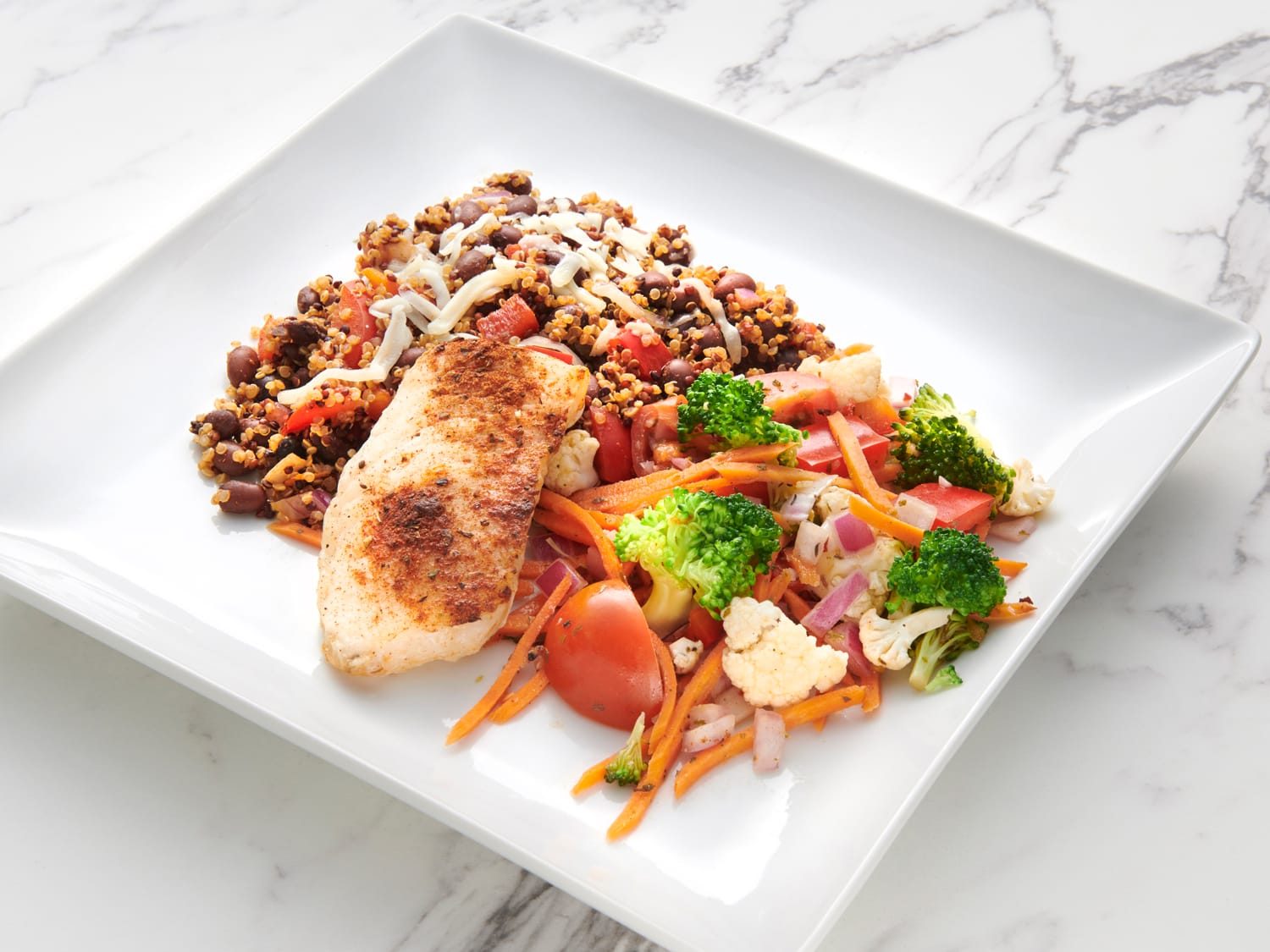This plan is tailor-made for those who need more fuel
Our 2,000-calorie meal plan is the choice for those with taller or larger builds (most men fall into this category), those who are very active and looking for weight loss, those seeking weight maintenance, and pregnant or nursing mothers. Like our 1,200 calorie plan, this plan offers balanced nutrition through a wide variety of lean protein sources such as chicken, turkey, fish and beef as well as lots of fruits and veggies, whole grains, nuts and seeds. In addition to promoting weight loss, this menu follows the guidelines of the American Heart Association, the American Diabetes Association and the Academy of Nutrition & Dietetics to help those with conditions including heart disease, diabetes, high cholesterol, kidney disease and high blood pressure to better manage their health. If you’re not sure which plan to choose, feel free to contact us. We're happy to help! We also encourage you to share our Nutritional Analysis Chart below with your physician or dietitian to ensure which of our meal plans is right for you.
Nutritional highlights
Nutrition analysis - average per day based on the 5-week menu cycle.
Balance of macronutrients
A balanced diet is one that consists of an optimal proportion of lean proteins, complex carbohydrates and healthy fats. Each of these three macronutrients provides unique nutrition your body needs. Our meal plans — at every calorie level — achieve this balance by following the recommendations of the National Academy of Sciences. When you eat our balanced, nutritionally complete menu, you’ll feel satisfied while avoiding the unwanted side effects of diets that restrict one macronutrient, such as carbohydrates, while going overboard on another, such as protein.
Total carbohydrates
Carbohydrates are the main, most important energy source of the human diet. But not all carbs are created equal. “Good” carbs are high in dietary fiber and found in vegetables, fruits, whole grains, legumes and seeds. “Bad" carbs are found in things like refined white bread, soda, and sugary treats such as cookies and candy. The large majority of the carbs in our meal plan are healthy, good carbs that come from fiber-rich vegetables, fruits, whole grains, legumes and seeds.
Fiber
Experts recommend a minimum of 14 grams of dietary fiber per 1,000 calories consumed, which equates to a minimum of 28 grams of fiber in a 2,000-calorie diet. Our 2,000-calorie plan provides 42 grams of dietary fiber per day, well above the recommended minimum.
Sugar
Most people see the word “sugar” on a nutrition label and assume it’s a bad thing. In part, that’s because food labels don’t differentiate between types of sugars - added and natural. The American Heart Association recommends fewer than 38 grams of added sugar per day for most men. Those are the sugars found in things like desserts, sodas and candy. Meanwhile, the natural sugars found in fruits, vegetables and dairy products play an important role in the human diet because they are packed with essential nutrients. While you’ll find healthy natural sugars in our meals, our menus are very low in added sugars with our 2000-calorie plan including just 27g of added sugar per day; far less than the AHA’s recommended limit. We use absolutely no artificial sweeteners.
Total fat
Fats are an essential component of a healthy diet, but it’s important to eat the right kind of fats. Our meal plans provide an optimal proportion of “good” (unsaturated) fats from foods such as avocados, nuts, eggs, sesame seeds, pumpkin seeds and olive oil. In addition, our menus meet the strict guidelines of the American Heart Association for limits on total fat and saturated fat, and include zero trans fats.
Sodium
The American Heart Association recommends no more than 2,300 milligrams of sodium per day in general. Our 2,000-calorie meal plan meets this guideline with an average of just under 2,300 milligrams of sodium per day.
*Note: The Nutrition Analysis above applies to our standard, 2000-calories-per-day plan based on the complete 5-week menu cycle, with no menu customization.






